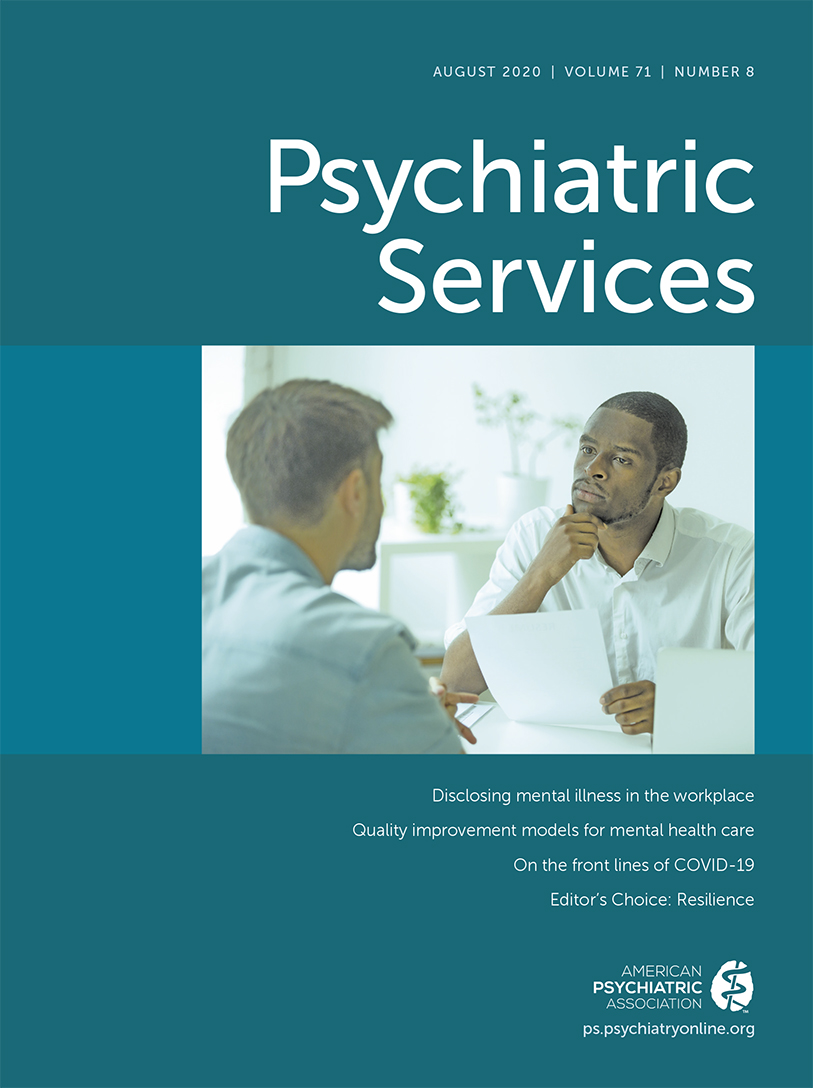Employment and Workplace Disclosure of Mental Illness
This issue includes an important Open Forum by Lang and colleagues on issues of disclosing one’s mental illness in the workplace (1). This piece is important in ways that may at first not appear obvious but that may be useful to identify. I elaborate on three of these.
First, the authors point out that a significant number of people need at some point in their careers to take a leave of absence due to a mental illness. Community psychiatry has been far more involved in developing ways to enable persons with mental illness to obtain jobs, with employment rates among our population of concern consistently hovering around 15%. While we have rightly been concerned with closing the gap between that 15% and the 70% who report wanting to be employed, we have virtually neglected people who have more episodic conditions that have enabled them to be employed without disclosing having a mental illness. Lang et al. bring attention to this otherwise invisible population, reminding readers that most persons with mental illness are employed, which challenges stereotypes. While we may either be one of these people or know others who have kept their mental health condition private while working, it is time to bring broad public recognition to our presence in the workforce and to consider its implications for research and practice.
Second, in focusing on “disclosure management,” the authors frame disclosure as a matter of choice for the person, at least ideally, and acknowledge that there are reasons both to disclose and not to disclose. As they point out, disclosure may be required to some degree to obtain the kinds of reasonable workplace accommodations afforded to persons with disabilities under the law, but the stigma surrounding mental illness makes this process fraught with the likelihood of misunderstanding and mismanagement on the part of employers and possibly coworkers. The complexities involved in disclosure argue not only for additional research, as the authors suggest, but also for energetic efforts to combat the stigma and discrimination that make disclosure problematic in the first place.
Third, the authors suggest that “employees with mental illness would … benefit from support on how to best manage disclosure” to their employer, arguing that they “should be guided to disclose only what serves their successful reintegration” into the workplace. These discussions should take place within the context of shared decision making, in which the person is supported in making a decision in his or her best interest. In making this suggestion, the authors provide an excellent example of how clinical care and other forms of recovery support can focus increasingly on issues that matter most to the persons being supported—such as meaningful employment and having a career—rather than solely on illness management or prolonging community tenure. Although practicing self-care can be an important component of recovery, persons with mental illness are much more likely to do so when they have a reason to get out of bed in the morning—that is, because they have a job, or school, or other interesting pursuits awaiting them. We have learned through our experiences with individual placement and support employment programs that work can be as much a path to recovery as one of its many rewards. There should no longer be an expectation for people to put off pursuing employment until they are considered well enough, because employment itself, with appropriate supports in place when needed, can be a significant factor in promoting recovery.
While not obvious implications of the Open Forum, these points may be central to the broader agenda of enabling persons with mental illness to obtain and retain employment as a cornerstone of recovery. Acknowledging that many persons with mental illness are already in the workforce, increasing access to reasonable accommodations, and taking up a person’s desire to work as a central concern of mental health care may be important steps in ensuring that everyone with a mental illness who wants to work can work.
1 : Disclosure management when returning to work after a leave of absence due to mental illness. Psychiatr Serv 2020; 855–857:s201900617Link, Google Scholar



